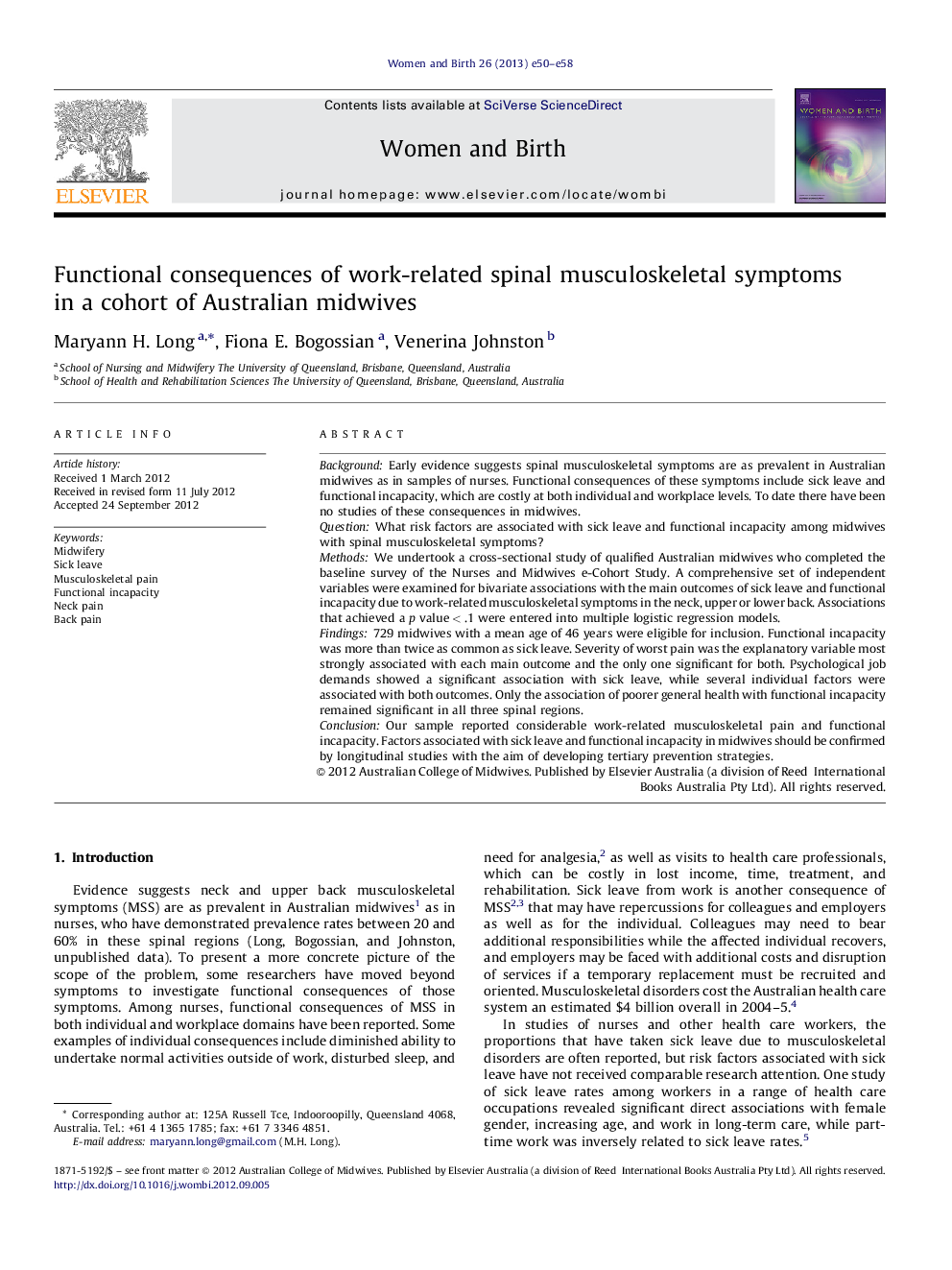| Article ID | Journal | Published Year | Pages | File Type |
|---|---|---|---|---|
| 2636093 | Women and Birth | 2013 | 9 Pages |
BackgroundEarly evidence suggests spinal musculoskeletal symptoms are as prevalent in Australian midwives as in samples of nurses. Functional consequences of these symptoms include sick leave and functional incapacity, which are costly at both individual and workplace levels. To date there have been no studies of these consequences in midwives.QuestionWhat risk factors are associated with sick leave and functional incapacity among midwives with spinal musculoskeletal symptoms?MethodsWe undertook a cross-sectional study of qualified Australian midwives who completed the baseline survey of the Nurses and Midwives e-Cohort Study. A comprehensive set of independent variables were examined for bivariate associations with the main outcomes of sick leave and functional incapacity due to work-related musculoskeletal symptoms in the neck, upper or lower back. Associations that achieved a p value < .1 were entered into multiple logistic regression models.Findings729 midwives with a mean age of 46 years were eligible for inclusion. Functional incapacity was more than twice as common as sick leave. Severity of worst pain was the explanatory variable most strongly associated with each main outcome and the only one significant for both. Psychological job demands showed a significant association with sick leave, while several individual factors were associated with both outcomes. Only the association of poorer general health with functional incapacity remained significant in all three spinal regions.ConclusionOur sample reported considerable work-related musculoskeletal pain and functional incapacity. Factors associated with sick leave and functional incapacity in midwives should be confirmed by longitudinal studies with the aim of developing tertiary prevention strategies.
